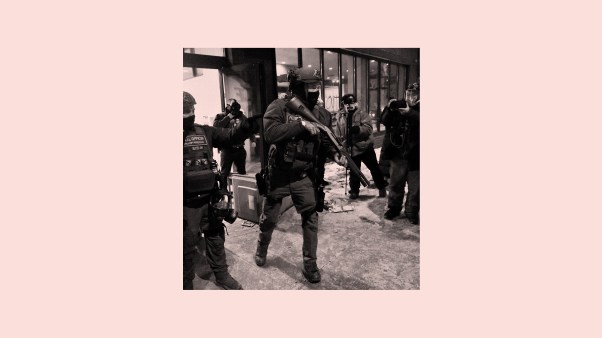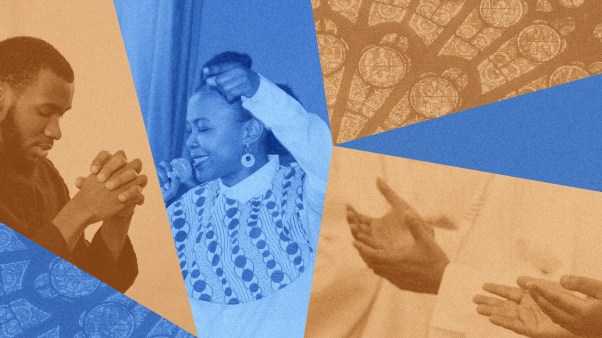What’s the time? The room was dark, but I was awake. I reached over to my phone and saw that it was too early. It was Saturday, October 7, a little before 7 a.m., and I was hoping to sleep in.
But as I looked at my phone, I noticed an unusual number of messages waiting to be read on WhatsApp and iMessage. As I began reading of what was happening in Israel, my stomach dropped and my eyes teared.
In a shocking and devastating turn of events, the terrorist group Hamas had launched a highly coordinated attack on Israel—what the world now calls Israel’s 9/11, a surprise strike by more than 3,000 rockets as well as by ground forces from the land and sea. In less than 24 hours, this evil attack left hundreds dead and injured, mostly Israeli civilians, but also some tourists and visitors. Scores more were kidnapped by Hamas.
It would be two weeks before my wife and I would be able to travel to Israel to be with our family, friends, and staff at Jews for Jesus, where I am the chief operating officer, during these unimaginably difficult days.
Stepping off the plane, we sensed a deep sadness and grief. You can feel it in the air and see it on people’s faces. Tel Aviv’s bustling and energetic nightlife is gone. Instead, there are constant memorials and gatherings to mourn. You must stay near known, safe locations so you can take shelter if a siren sounds.
Now, a month later, the numbers have tragically increased: more than 8,500 rockets have been fired from Gaza, more than 1,400 innocent Israelis have been murdered and over 4,500 injured, and more than 240 hostages are being held in Gaza. And, since arriving in Israel, I have found time to reflect on the reality of this war.
It is impossible not to think about the crisis. Stories about the war are constantly on TV, and billboards all over the country show the faces of kidnapped hostages. Every Israeli either knows someone who has been murdered or kidnapped or has friends with family among the victims. This kind of personal impact is inevitable in a small country (only 7 million Jews live in Israel). There is a deep sorrow over the loss of innocent life and the kidnapped suffering in captivity.
Now, hundreds of thousands of Israeli men and women have left home to serve in the Israeli Defense Forces (IDF), risking more trauma for more families. Parents are worried for children, and children are worried for parents who are serving on the front lines.
Israel’s armed forces, intelligence, and security have always been a source of national pride. Sure, we’ve had terrorist attacks and our fair share of rockets, but, for the most part, Israelis and diaspora Jews alike felt safe and secure in our homeland. Many Christians traveling to Israel from overseas would comment how safe they felt even amid long-running conflict.
The reason for that feeling is that Israel takes security seriously. Israelis know it, feel it, and trust it. Prime ministers have won and lost elections on the promise of security. But one consequence of October 7, now known in Israel as Dark or Black Sabbath, is that Israelis feel we can no longer trust the current government’s security promises.
Many have compared this crisis to the Yom Kippur war, where Israel was also caught off guard. But there is one big difference: In 1973, the dead and kidnapped were all soldiers. This time, they were overwhelmingly civilians. The brutality of this evil has shaken Israelis, causing many to lose all sense of trust and security. People are genuinely afraid. Everyone is on high alert.
We are also grieving, but we are grieving together. Next to the billboards with pictures of the kidnapped, there are billboards with the slogan Yachad NeNatzeach: Together We Will Be Victorious.
It’s ironic—or maybe providential—that this great unity has come during the most divided period in Israel’s history. Before the attack, and for the previous 10 months, the nation was fragmented over a controversial judicial reform, causing major protests. Some said that the country is on the brink of civil war.
No more. After October 7, the nation has united in what our prime ministry called a fight for our survival. Never in Israel’s history have so many people come together so quickly. It seems like everyone is lending a hand in whatever is needed during this crisis. Thousands upon thousands are volunteering to help one another.
This unity gives strength. The comradery, fellowship, and togetherness that is exhibited in Israel now is inspiring.
It is especially inspiring in the body of Messiah in Israel. Many Christian ministries and congregations have united to love and serve our people, providing care for displaced families and soldiers. It has been wonderful to see firsthand how the church can share the love of Messiah in tangible ways.
These are undoubtedly challenging times, and the loss of our beloved sons and daughters to the cruelty of terrorism has left many people grappling with questions and yearning for hope and comfort. The IDF has a long track record of success, and the United States has shown strong support for Israel. Trying to draw hope from these things is tempting—but honestly, I know it is futile and temporary. As Psalm 20:7 says, “Some trust in chariots, and some in horses; but we will remember the name of the Lord our God” (NKJV).
I need to be reminded daily—sometimes at every moment of the day—that my trust must be firmly rooted in the Lord. Only when I look up to him, only when I draw strength from his Word and sit in his presence in prayer, do I feel grounded. Only then am I reminded of the eternal hope that I have in Messiah Yeshua. He is our present and future hope.
The October 7 attack will be remembered as one the most severe attacks on Israeli soil ever. We are praying day and night for the God of Israel to arise and save our people. The God of Israel is alive. He holds his daughter Zion in the palm of his hand. He has parted the sea, torn down walls, and stopped the sun for her. He will not abandon us today.
Dan Sered was born in Israel but came to faith in Jesus while attending Stony Brook University in New York. He is the chief operating officer of Jews for Jesus and has served with the organization in Israel, where he also pastored a church and taught at Israel College of the Bible.













